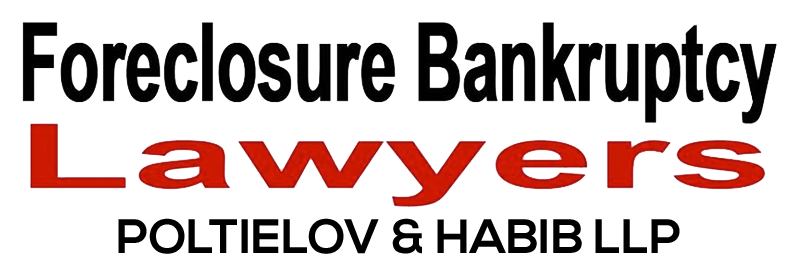
16 Jan Living in Forest Hills? Here’s How Chapter 13 Bankruptcy Works
Anyone living in Forest Hills knows that life in this part of Queens can be full of surprises. While there can be many good times, there may also be moments when bills pile up, debt grows too large, and homeowners worry about losing their place to foreclosure.
Chapter 13 bankruptcy can be a way to take control of these financial problems. It allows people to reorganize their debts and catch up on payments over time.
If you are in Forest Hills and are considering this kind of relief, you might wonder how it all works. Contact our Forest Hills bankruptcy lawyers at Poltielov & Habib, LLP, for guidance today. Our team can help you understand how Chapter 13 might help you get a handle on your debts and secure a more stable future.
Why Consider Chapter 13 Bankruptcy?
People in Forest Hills often look at their finances and see more debts than they can handle. Credit cards, medical bills, personal loans, and mortgage arrears can add stress and fear to everyday life. Some worry about losing their homes, cars, or the peace that comes from sleeping soundly at night without debt collectors calling. Chapter 13 bankruptcy is designed to help you keep important property and reorganize debt into a more workable payment plan.
It differs from Chapter 7, which is often about wiping out debts quickly. Chapter 13 lets you roll many of your debts into a single monthly payment, spreading that payment out over three to five years. This gives you time to catch up on mortgage payments, hold onto property, and still get protection from collection attempts from creditors. The idea is not to take away all you own; it is to give you the time and breathing room to repay certain debts on terms you can handle.
Starting a Chapter 13 case can feel like opening a door to a second chance. During the repayment period, you must keep making your current monthly bills as well as the agreed-upon plan payment. Once you make it through the plan, any remaining dischargeable debts are cleared, giving you a cleaner slate.
If you are ready to learn more or want help starting the process, our Forest Hills bankruptcy lawyers at Poltielov & Habib, LLP, can help. Call today and see how we can guide you.
Can Chapter 13 Save My Home from Foreclosure?
Residents of Forest Hills value their homes. Home means comfort, security, and stability. When foreclosure threatens, it can feel like everything you have worked for might slip away. Chapter 13 provides a chance to stop the foreclosure process and set up a plan to catch up on past-due mortgage payments. This is not a promise that every home can be saved, but it gives a structured path that many homeowners find helpful.
Once you file Chapter 13, an automatic stay goes into effect. This means creditors must halt foreclosure proceedings for a time. During your repayment plan, you can make your regular mortgage payments while also paying back the overdue amount over the three-to-five-year plan period. By the time the plan ends, you should be up to date on your mortgage. This allows you to keep your home, assuming you continue to make timely payments going forward.
Of course, this only works if you have enough income to handle these combined payments. You must be honest about your finances and whether you can afford the plan. If your income is steady and you can follow the repayment schedule, Chapter 13 can be the key that helps you remain in your Forest Hills home. Our Forest Hills bankruptcy lawyers at Poltielov & Habib, LLP have helped many people understand their rights and options under Chapter 13. Contact them to learn more.
Who Qualifies for Chapter 13 Bankruptcy?
Chapter 13 is designed for people with a steady source of income. Unlike Chapter 7, which focuses on your income level, Chapter 13 wants to know if you have enough income to make a structured payment to creditors each month. You must show that you can meet all current expenses and still pay the amount required by the repayment plan. If your income is too low or your debts are too high, Chapter 13 might not be the right fit.
Also, to qualify, your secured and unsecured debts must fall below $465,275 for unsecured debt and $1,395,875 for secured debt. These limits sometimes change, so it is wise to speak with our Forest Hills bankruptcy lawyers at Poltielov & Habib, LLP, about the current debt limits. We can help you understand if your debt level fits Chapter 13’s requirements.
You must also be an individual, not a corporation or business entity. If you run a small business as a sole proprietor, you can file Chapter 13 and include both personal and some business debts. This can help if your personal and business finances are tied together.
If you have filed for bankruptcy before, you may have to wait a certain period before filing again. You must also complete a credit counseling course before you file. The course is not hard, and it can help you consider if bankruptcy is the best path.
If you are unsure whether you qualify, our Forest Hills bankruptcy lawyers at Poltielov & Habib, LLP, can review your debts, income, and goals. We know the law and can offer advice on the best way forward.
What Debts Are Paid in a Chapter 13 Plan?
The Chapter 13 plan covers many types of debts. It will include secured debts like your mortgage and car loans, especially if you need to catch up on missed payments. It will also include priority debts, such as certain taxes and child support, which must be paid in full over the life of the plan. Unsecured debts, such as credit card bills and medical bills, may also be included, but you might pay only a portion of them depending on your income and the total amount of debt.
The plan might allow you to stretch car payments out or adjust interest rates, giving you more room in your budget. It can also help you repay overdue mortgage amounts gradually while you keep making your current monthly mortgage payments on time. By the time the plan ends, these overdue amounts should be caught up, and you should be in good standing with your mortgage lender.
Any remaining dischargeable unsecured debts are wiped out at the end. This can include credit cards, medical bills, and certain personal loans. By carefully following the plan, you can emerge from Chapter 13 with fewer debts and a stronger financial position.
Will Filing Chapter 13 Affect My Spouse?
If you file alone, your spouse might not be affected unless they are also responsible for the debts. If you hold joint debts, your spouse might still be on the hook for those debts outside of the bankruptcy plan. However, the automatic stay protects you and can prevent creditors from collecting from joint property in some situations.
You should discuss this with our Forest Hills bankruptcy lawyers at Poltielov & Habib, LLP, before filing. We can explain how joint debts are handled and whether it makes sense for your spouse to file as well.
Consider Talking to Our Forest Hills Bankruptcy Lawyers
If you live in Forest Hills and feel overwhelmed by debt, consider talking to our Forest Hills bankruptcy lawyers at Poltielov & Habib, LLP about Chapter 13. We can help you understand your options, decide if this form of bankruptcy fits your needs, and guide you through every step of the process. Call us today at (718) 520-0085 to schedule a consultation. Even a brief conversation can help you feel more informed and ready to move forward.
Taking control of your financial life is not about giving up. It is about finding a legal tool that can help you solve problems and protect what matters most. Chapter 13 might give you the breathing room and structure you need to save your home, pay your debts on a schedule that works, and come out stronger at the end.
If you are ready to learn more, do not hesitate. Contact our Forest Hills bankruptcy lawyers at Poltielov & Habib, LLP, and start on the path to a more stable financial future


